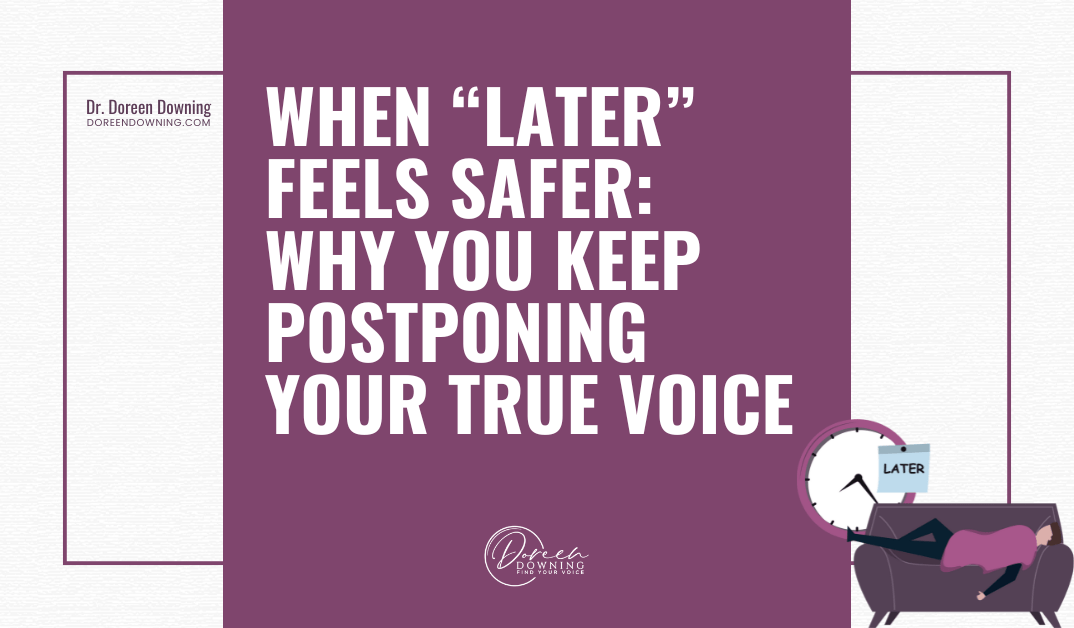Living With the Fear You Already Know
Most people who struggle with speaking anxiety already know it. They’ve felt their heart race before a meeting, heard their voice shake in introductions, or watched themselves stay quiet when they had something meaningful to say.
They tell themselves they’ll work on it eventually. When the schedule clears. When life slows down. When they feel more ready. But somehow, that moment never comes.
You’ve learned to live around this fear.
You choose roles that don’t demand visibility. You let others take the floor. You tell yourself that listening is your strength. Over time, silence stops feeling like avoidance and starts feeling like stability.
But every so often, something important happens that asks for your voice—a presentation, a hard conversation, a personal truth that wants to be spoken—and you feel that same tightening in your body. You remember why you stayed quiet before. And again, you say, “Not now.”
How Fear Becomes Routine
Speaking anxiety doesn’t appear out of nowhere. For many, it begins early in life. Maybe your words were dismissed, corrected, or used against you. Maybe you learned that being quiet kept the peace.
Your body remembers what it needed to do to stay safe. Even years later, in moments that matter, your nervous system reacts as if you’re still in danger. The situation changes, but the internal script stays the same.
Over time, this becomes your baseline. You get so good at managing fear that you mistake it for calm. You feel in control because you avoid the moments that trigger it. It’s not laziness; it’s conditioning. And as long as speaking feels risky, “I don’t have time” will always sound reasonable.
The Hidden Cost of Getting By
Adapting is human. But when adaptation turns into avoidance, something gets lost. You stop stepping into opportunities that could grow you. You soften your ideas to sound safe. You hold back emotions that would bring you closer to others.
You may not notice the loss at first. You’re functioning, succeeding, maintaining. But over time, that quiet avoidance creates distance, from your work, your relationships, and the part of you that wants to be seen for who you really are.
What you call comfort might actually be control.
And what you call calm might simply be the absence of risk.
Speaking As Healing
Confidence doesn’t begin with technique. It starts with safety. When your body learns that being heard no longer feels scary, speaking becomes natural. You think less, and you connect to your truth more.
Finding your voice isn’t about becoming someone new. It’s about meeting the part of you that learned to stay quiet and making it feel safe to be seen and heard now.
The moment you turn toward that quiet part with compassion, something begins to loosen. Your breath moves more freely. That’s how healing begins.
So, pause and take a breath right now, before moving on. Then ask yourself: What would change if you felt safe enough to use your voice?
Listen to your body, maybe it’s a whisper stirring in your soul. Pay attention. That stirring is your voice waking up.
If You Felt That Whisper, Trust It
Give it space this week in a journal, a quiet moment, or a conversation with someone safe.
Every time you listen, your voice learns it is safe to return. This is where confidence begins, not in doing more, but in finally being heard.
If something in this reflection spoke to you, you’re welcome to share your insight or question in the comments. Sometimes, saying it aloud is the first step in helping your voice come home.

